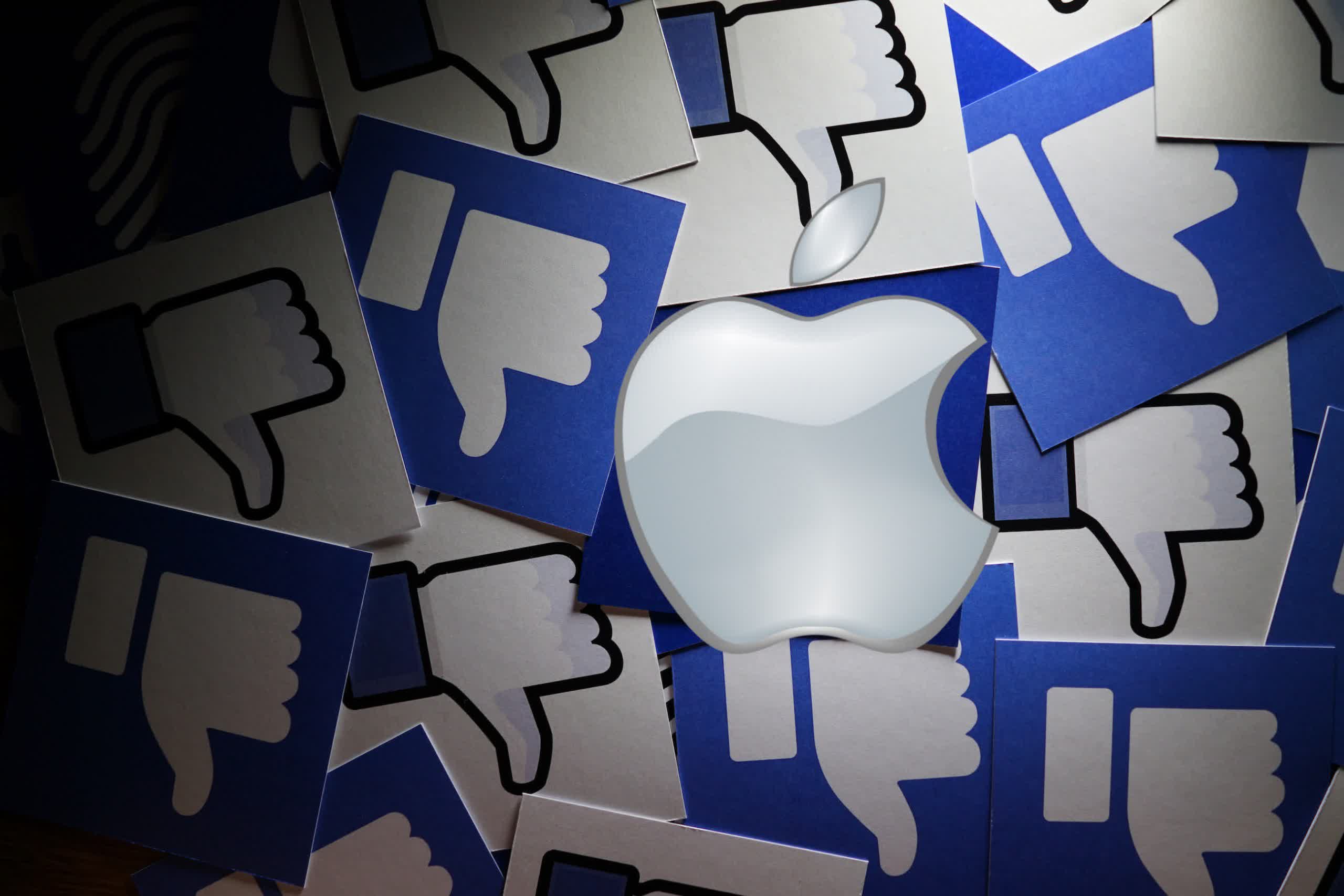In context: With iOS 14, Apple introduced a new transparency policy that requires app makers to post privacy "nutrition labels" on their App Store descriptions. Perhaps more importantly, apps must now ask for users' permission to track or collect data.
Yesterday, Facebook criticized Apple's new rules and privacy features with full-page ads in The New York Times, Wall Street Journal, and Washington Post. The social media giant claimed that Apple is "devastating" small businesses with its changes.
In response to the ad, Apple issued a statement to The Washington Post, defending its position on giving users a choice in whether they want apps tracking them and collecting personal data.
"We believe that this is a simple matter of standing up for our users. Users should know when their data is being collected and shared across other apps and websites --- and they should have the choice to allow that or not. App Tracking Transparency in iOS 14 does not require Facebook to change its approach to tracking users and creating targeted advertising, it simply requires they give users a choice."
Apple's response came shortly after Facebook's ad was published. Overnight, Facebook prepared another set of full-page ads pushing the issue further.
So #Facebook plans to run a second anti-Apple ad tomorrow. This one will claim #Apple is trying to stop the internet from being free.
--- John Paczkowski (@JohnPaczkowski) December 17, 2020
Here's some draft text: pic.twitter.com/Spzx1rwJSc
It is not the first time Facebook has fired shots at Apple over iOS 14's new anti-tracking features. It vocally warned its partners back in August of an adocolypse coming with the updated mobile operating system. Last month, it criticized Apple of using the user-centric policies and features "to self-preference their own data collection."
Facebook has also recently sided against Apple in another arena. In conjunction with yesterday's attack ad, the company came to Epic's aid in its legal battle with Apple. The Wall Street Journal notes that Facebook pledged to provide supporting material and documents to Epic to use against the Cupertino powerhouse.
It is clear that Facebook is on the attack and does not intend to let up. However, fighting against consumers' rights to control personal data while using small businesses to excuse and validate involuntary data collection might not be the best optics.
Image credit: TY Lim
